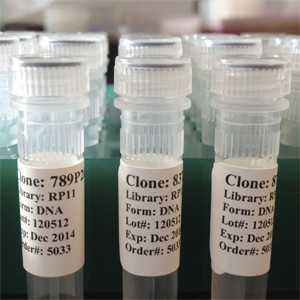Veridex CellSearch® Assay
The CellSearch® Circulating Tumor Cell (CTC) Test from Veridex is a simple blood test that captures and counts CTCs to determine the prognosis of patients with metastatic breast, colorectal or prostate cancer at any time. The test offers an objective, quantitative, real-time reading of tumor information so that oncologists can provide optimum care for their patients.
The CellSearch CTC assay uses peripheral whole blood for the detection, enrichment and quantification of CTC of epithelial origin. CTC measurement helps oncologists to determine the prognosis, in predicting cancer progression and to monitor therapy in the management of patients with metastatic breast, prostate and colorectal cancers
The CellSearch CTC assay is the only FDA approved test for CTC counting in patients with metastatic cancers. Each result of a CTC test is verified by both a laboratory technologist and a pathologist to ensure high quality of reporting.
Description
The CellSearch platform is the first standardized, automated and reproducible system for the detection, enrichment and quantification of circulating tumor cells (CTCs) of epithelial origin in peripheral blood. Epithelial cells that express epithelial cell adhesion molecule (EpCAM) and cytokeratins (CK) 8, 18, and 19 are selected for further analysis.
The CellSearch Epithelial cell kit (Veridex LLC) contains an anti-EpCAM ferrofluid capture reagent and immunofluorescent reagents. The anti-EpCAM ferrofluid reagent consists of anti EpCAM magnetic beads which target the EpCAM antigen expressed by some types of epithelial tumors. After immunomagnetic capture, the CTCs are labeled with a fluorescent nucleic acid dye 4',6-diamidino-2-phenylindole (DAPI). Fluorescent-labeled monoclonal antibodies specific for leukocytes (anti CD45-Allophycocyanin) and epithelial cells (anti cytokeratins 8, 18, and 19- phycoerythrin) are used to distinguish epithelial cells from leukocytes. The identification and quantification of CTCs is performed by the CellTracks Analyzer II, a semiautomated fluorescent microscope that enables computer generated reconstruction of cellular images. CTCs are defined as nucleated cells (DAPI+) expressing CK 8, 18, and 19 and lacking CD45.
Molecular profiling studies (DNA, RNA) including FISH, array based methodologies, and cellular phenotyping (PSA, HER-2/neu or EGFr ) can be performed on the captured CTCs.
Clinical Information
CellSearch CTC Assay is intended for the enumeration of CTCs of epithelial origin found in the whole blood of patients with metastatic disease. In several multi-center prospective clinical trials, elevated levels of CTCs have been shown to be a strong, independent predictor of shorter PFS and OS in patients with metastatic breast,1-4 prostate,5 or colorectal cancer.6,7 In these studies the patients were separated into 2 groups based on their CTC count. The favorable group represented patients with a baseline circulating tumor cell count <5/7.5mL, (<3 for colorectal cancer) while the unfavorable group represented patients with a baseline count ≥ 5/7.5mL, (≥ 3 colorectal cancer).
Patients in unfavorable groups were predicted to have shorter progression free survival (2.7 vs. 7.0 months, 4.5 vs. 7.9 months, 4.2 vs. 5.8 months for breast, colorectal and prostate metastatic cancers, respectively) and overall survival (10.9 vs. 21.9 months, 9.4 vs. 18.5 months and 11.5 vs. 21.7 months for breast, colorectal and prostate metastatic cancers, respectively) when compared with patients in favorable groups.
Detection of elevated CTCs at any time during therapy is an accurate indicator of rapid disease progression and shorter survivaI.(2)
The count of CTCs in patients with metastatic breast cancer, may predict treatment response earlier than imaging (3-4 weeks vs. 8-12 weeks after initiation of therapy). (3)
In patients with metastatic prostate cancer, CTC counts were shown to be earlier predictors of treatment response than the reduction in prostate- specific antigen (PSA) levels (2-5 weeks vs. 6-8 weeks).(5,6)
Clinical Use
1. Predict progression free survival (PFS) and overall survival (OS)
2. Monitor response to therapy
Research Use
The CTC assay has been used for research in urinary bladder, biliary duct, hepatocellular, pancreatic and lung cancers, as well as in melanoma.
CTC testing population
Patients with metastatic breast, prostate and colorectal cancers at baseline (prior to therapy) and at follow-ups.
Specimen Collection and Shipment
For CTC enumeration, 20 ml whole blood must be drawn into two proprietary CellSave Tubes (Veridex). Store sample at room temperature. Date and time of draw are required. The specimen should be shipped promptly (no ice, at 15 to 30°C) to make sure the test can be performed within 96 hours of the blood draw. Samples are accepted Monday through Thursday and not on the day preceding a holiday.
Caution
Fill the tube until the blood flow stops to ensure the correct ratio of sample to anticoagulant and preservative. Immediately mix by gently inverting the tube eight times. Tube inversion prevents clotting. Inadequate or delayed mixing may result in inaccurate test results. Do not refrigerate samples.
If the patient is on doxorubicin therapy, allow at least 7 days following administration of a dose of doxorubicin before blood draw.
Reference Range
Metastatic breast cancer: <5 CTCs/7.5 mL blood
Metastatic colorectal cancer: <3 CTCs/7.5 mL blood
Metastatic prostate cancer: <5 CTCs/7.5 mL blood
bio-equip.cn




